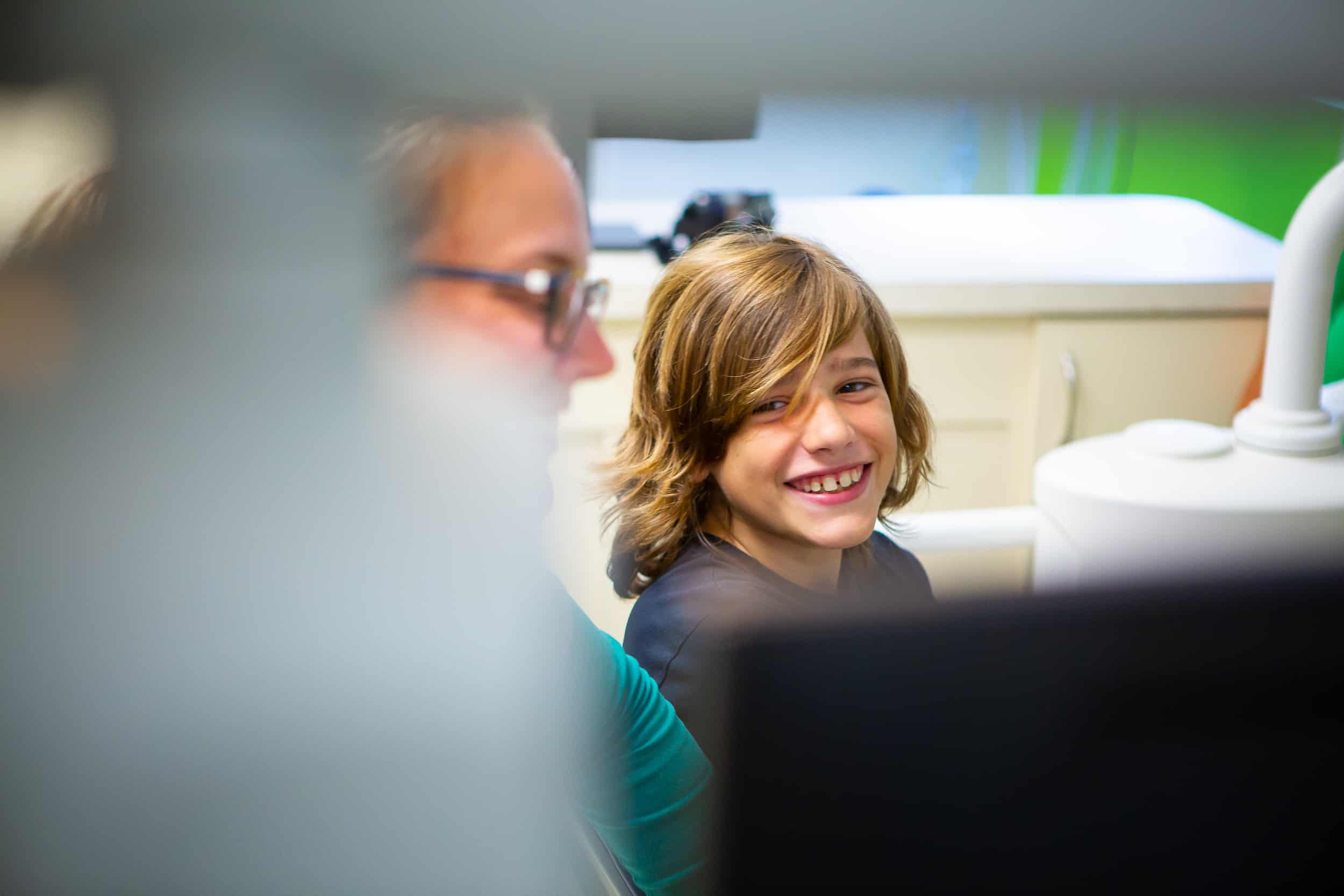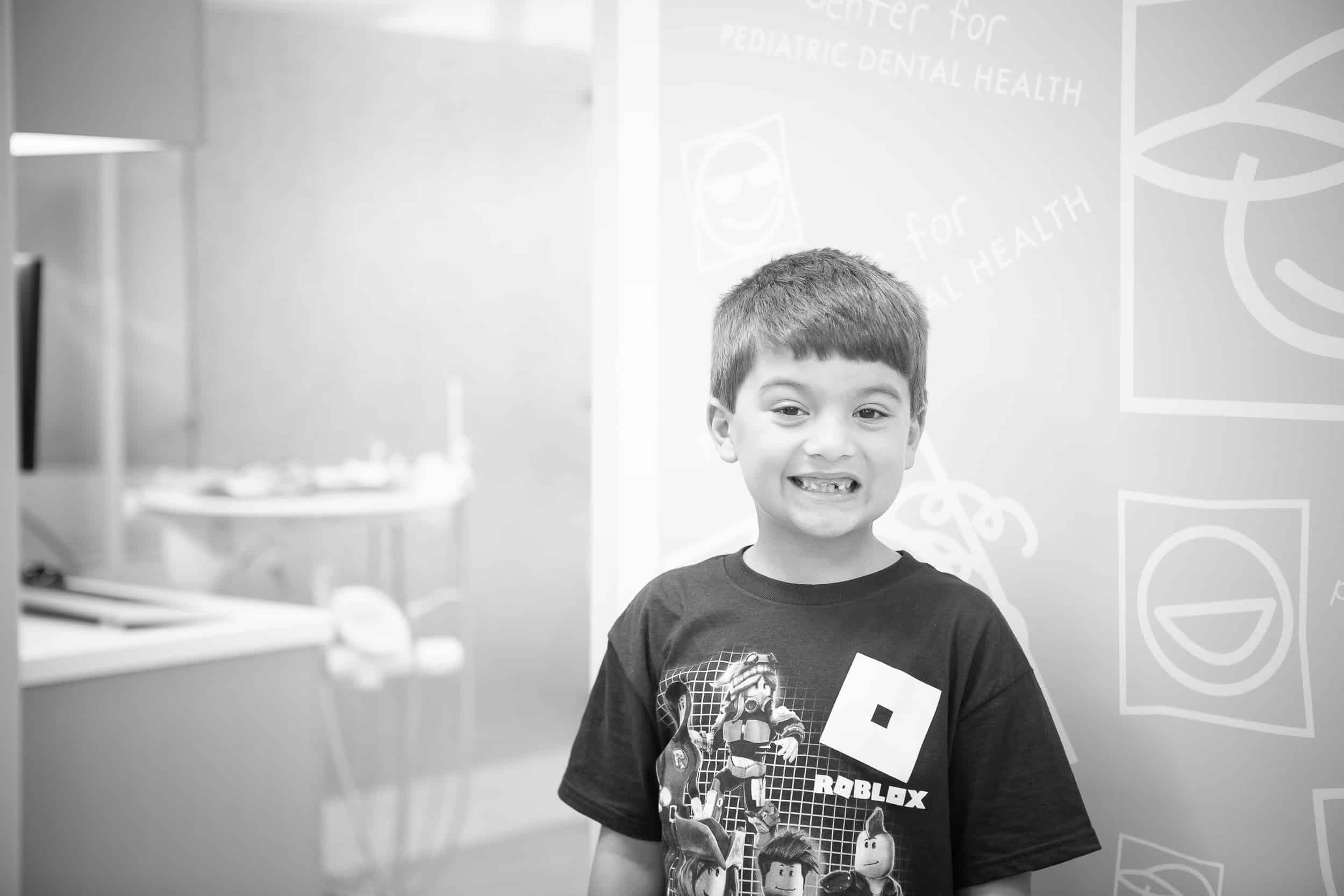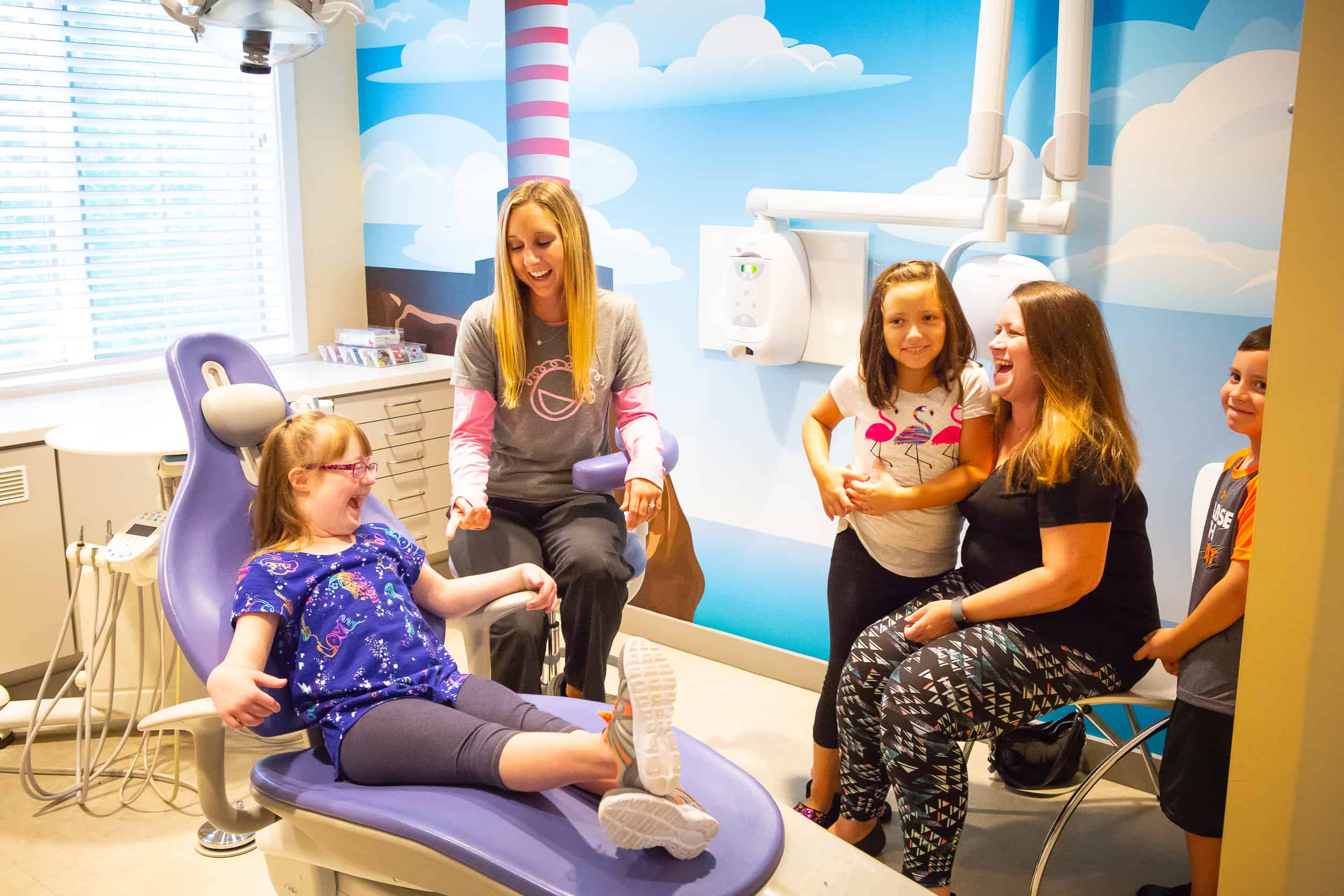Kids get so excited when they have a loose tooth. They’re getting big people’s teeth AND a visit from the Tooth Fairy! What’s not to be excited about? But what happens when a loose tooth just won’t come out? What do you do when the permanent teeth are already growing behind it, also known as shark teeth?
The Center for Pediatric Dental Health has seen its share of shark teeth. They’re not as uncommon as you might think. But it is important to move that loose tooth out of the way so the permanent tooth can erupt properly.
What do you do about a double row of teeth in a child? Let The Center for Pediatric Dental Health help!
When Do Baby Teeth Erupt?
Baby teeth, also known as milk teeth, primary teeth, or deciduous teeth, start erupting about six months of age. The first teeth to erupt are usually the lower central incisors, followed by the upper central incisors. Then the lateral incisors will come in, followed by the canines and finally the baby molars.
Fun fact: There are no premolars in a set of baby teeth. That means your child will have fewer baby teeth than adult teeth. Baby teeth are made to chew the soft foods that young children usually live on. Once they get older and start eating more “normal” foods, that’s when the permanent teeth come into play.
When Do Permanent Teeth Erupt?
Permanent teeth begin erupting about age six, once the baby teeth are all in. They generally follow the same pattern as the primary teeth, with the lower incisors coming in first, followed by the upper incisors, lateral incisors, and canines.
Then, things change a bit. The baby molars fall out and make way for two sets of bicuspid (dual-point) teeth called premolars. Behind them, the adult molars erupt. Instead of two sets of molars like with baby teeth, your child will most likely have three sets of molars.
We say “most likely” because the third set is called the wisdom teeth. Today, about a quarter of Americans won’t have all four wisdom teeth. About a quarter of them will have no wisdom teeth.
Permanent teeth mostly come in between 6 and 15 years of age. The wisdom teeth are the last to erupt between 17 and 22 years of age. Once they’re in, your child’s teeth are complete.
Losing Baby Teeth
How and why does your child lose their baby teeth? Baby teeth help the child’s speech development and their ability to start eating more normal foods. That’s why they’re so crucial to your growing child.
They also serve as placeholders for the permanent teeth. Once it’s time for the adult teeth to erupt, the roots of the baby teeth begin to dissolve. This allows the tooth to loosen and fall out because the only thing holding it is the gums.
At least, that’s how it’s supposed to work. For many children, however, the permanent teeth can start to erupt before the baby teeth are gone. This most often occurs between 5 and 7 years of age, involving the lower front teeth. However, it can happen with any baby tooth.
When this happens, the permanent tooth usually erupts behind the baby tooth, though it can show up in front of it. The result is two layers of teeth similar to what sharks have, hence the nickname “shark teeth.”
Why Does the Baby Tooth Not Fall Out?
Baby teeth not falling out may happen for several reasons. Developmental delays in baby teeth, permanent teeth, or both can delay the loss of baby teeth. The root of the baby tooth may not dissolve in time, or crowding and alignment issues may delay its loss.
The tooth may be loose for a long time. This isn’t terribly unusual. It may take longer for some baby tooth roots to dissolve than others. Usually, the problem will resolve itself with a bit of patience.
The best way to treat it is to continue brushing and flossing like normal and eating normally. It might help to gently wiggle the tooth daily. Forcing the tooth out can cause harm; let it come out on its own.
What to Do With a Stuck Loose Tooth
So what do you do with a loose tooth that won’t come out? Older adults remember all those ridiculous suggestions you heard as a kid. “Tie a string to your tooth and the other end to the doorknob and just slam the door!”
Yeah…don’t do that. Please, don’t do that.
“Home remedies” for pulling teeth can do more harm than good. You can damage the tooth behind it, the bone, or the gums. There are safe ways for getting rid of a stubborn baby tooth that don’t involve strings, doors, or even pliers.
The best thing to do is to call your pediatric dentist. We can make some recommendations on how best to handle the loose tooth. If necessary, we can have your child come in for an extraction.
You may think a double row of teeth in children is a reason to panic, but that isn’t necessarily the case. Over-retained teeth in young children usually aren’t harmful, at least at first. The best thing to do is to monitor your child’s tooth development.
When would an extraction be necessary? There are several ways it could be needed.
- The tooth makes it difficult for your child to eat properly.
- The tooth becomes painful.
- The tooth begins to split.
- The gums become inflamed or infected.
- The permanent tooth behind it begins to turn or come in crooked.
If any of these are happening, we strongly recommend you make an appointment with The Center for Pediatric Dental Health. We will assess your child’s shark teeth and the reasons for them. We’ll be able to let you know whether we would need to extract your child’s baby teeth or whether the teeth should come out on their own.
Baby Teeth Care in Sicklerville, NJ
Shark teeth can happen to any kid, and the problem usually resolves on its own. On rare occasions, intervention by a pediatric dentist is necessary to prevent developmental issues with your child’s oral health.
The Center for Pediatric Dental Health is here to guide parents through their child’s shedding of their baby teeth in Sicklerville, NJ, Mount Laurel, NJ, or Woolwich Township, NJ. We want to ensure your child’s teeth come in — and fall out — properly to prevent orthodontic problems down the road.
If you’re worried about your child’s shark teeth, schedule an appointment with The Center for Pediatric Dental Health. We’ll make sure your little sharks have a healthy bite!










